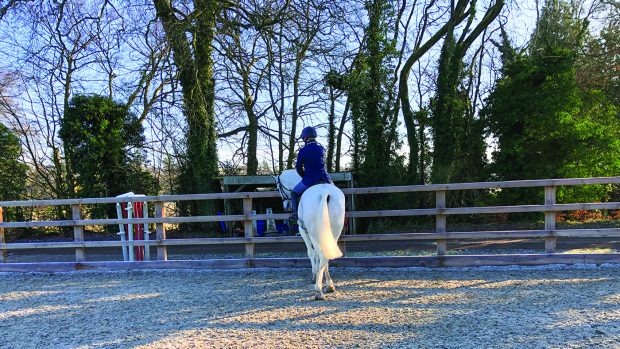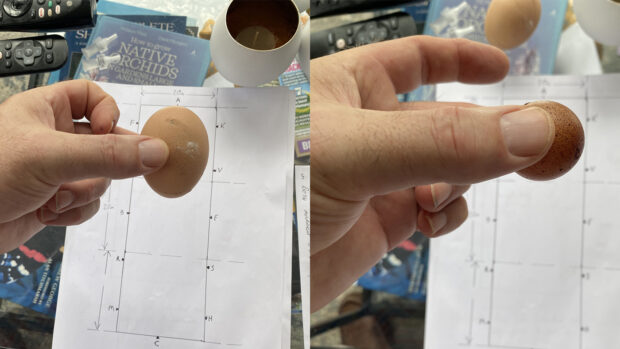Sitting in the small tack room at Cedar Stables in the picturesque village of Medstead, Hants, Suzanne Davies recounts her life story amid a stream of phonecalls.
Nothing was too much trouble as 31-year-old Suzanne showed me around the functional and compact 16-stable yard, with treadmill, indoor and outdoor arena. But then, this set-up is a team effort, which works with the help of family, friends, livery owners and pupils.
Suzanne took over the yard with her partner, Darren Mattia, six years ago. They live with his parents, who run a pub, The Fox, at nearby North Waltham.
Suzanne says: “We don’t have to worry about washing, cooking, shopping or cleaning. And there are friends who help out when we are away at shows. Without them, it just wouldn’t work.”
And she is busy, setting off for a training course with the national team coach, Conrad Schumacher, immediately followed by a trip to the Zwolle show in Holland to compete in her first Grand Prix test with Keystone Favoriet.
Having moved from Cheshire to South Africa at the age of six months, Suzanne, who comes from a non-horsey background, managed to persuade her father, a mining inspector, to take her to a riding school at the age of nine.
Here, Suzanne’s talent wasspotted by a lady who asked her to show her ponies and she also started showing an Arab belonging to her parents’ friends.
One day, Suzanne’s father asked her to show a just-backed Anglo Arab mare.
“I asked dad whether I could have her, but hesaid she was too expensive. Later he told me to go to the stables to give the horses some carrots and there she was. He just said, “she’s yours”.”
The mare turned out to be a talented show jumper and Suzanne, aged 18, was chosen to represent the province. She returned to England, ending up at Wellington Riding in Hampshire, where she stayed for 7« years, becoming senior instructor.
Suzanne decided it was time to buy her own horse and went to the British High Performance Horse Sale in 1989, having arranged a £5,000 bank loan.
Although she admits that the horse she wanted was probably not best suited as he was sharp and nappy, she was upset the bidding went beyond her means.
“I know it sounds pathetic, but I went to his stable to saygoodbye.”
By chance, Suzanne asked the groom looking after Holme Park Swahari to whom he had been sold, only to find out that the three-year-old Trakehner had not reached his reserve.
After a call to the bank to increase her loan, Suzanne returned home with her gelding: “Everybody had advised me against him, and there he was, refusing to unload.”
It turned out that Keystone Swahari, who had been bred in Germany, was used to rear-unload trailers and had to be reversed down the lorry ramp.
Undeterred, Suzanne went on to train her first horse to Grand Prix level, but specialising in dressage was not a conscious decision.”I did not plan to be a dressage rider – I love training horses. It is wonderful when you ride a horse which findssomething difficult and you help explain it.”
Suzanne describes her second Grand Prix horse also as “a bit of a fluke”.
Keystone Favoriet was originally meant for Darren. The Dutch-bred stallion, who was bought from a dealer in Denmark, becameIntermediaire I National Champion in 1996 and won the Intermediaire II title the following year after qualifying at his first attempt. Aged 11, he finished second in his first Grand Prix test in Holland.
Suzanne has had help from Peter Storr and Carl Hester. Like Carl, she is also breeding and buying youngsters to make sure that she does not disappear from the limelight.
Another important factor which should help her to reach every sportsman’s dream – to compete in the Olympics- is her laid-back attitude: “It doesn’t matter if you make a mistake in a test – we all fall over sometimes.”
This does not mean she does not have the will to win: “I don’t think I could be a rider who doesn¨t compete – I get such a buzz out of it.”


